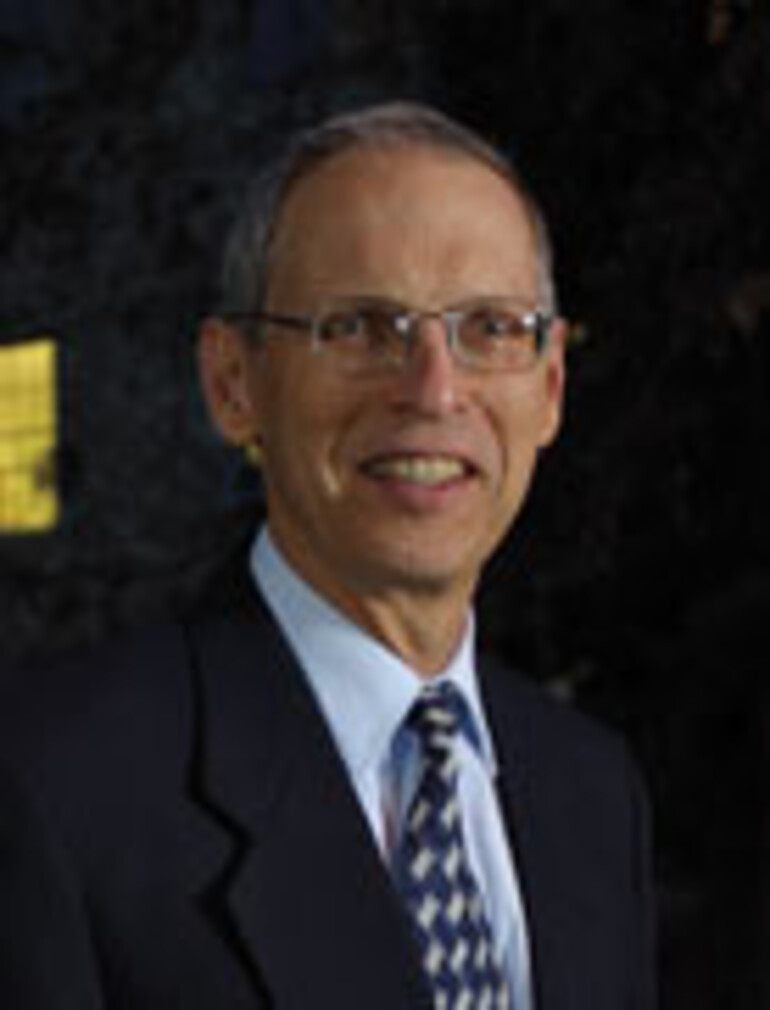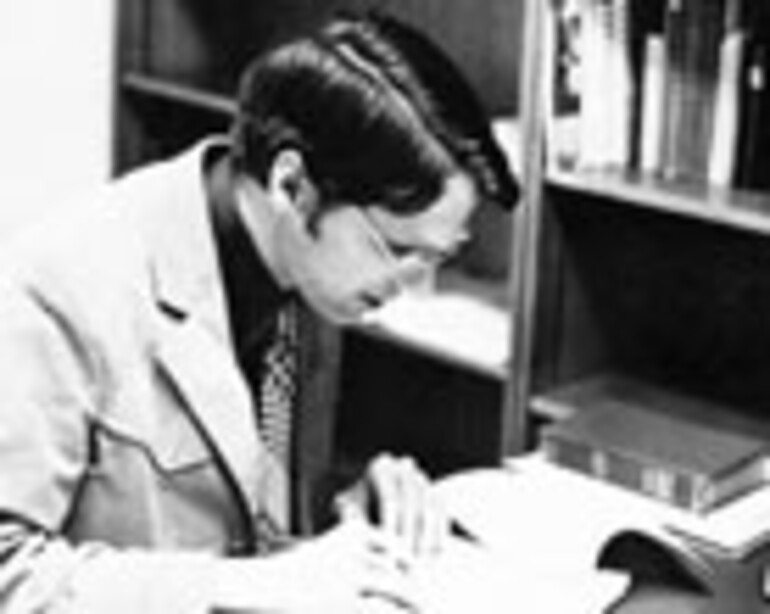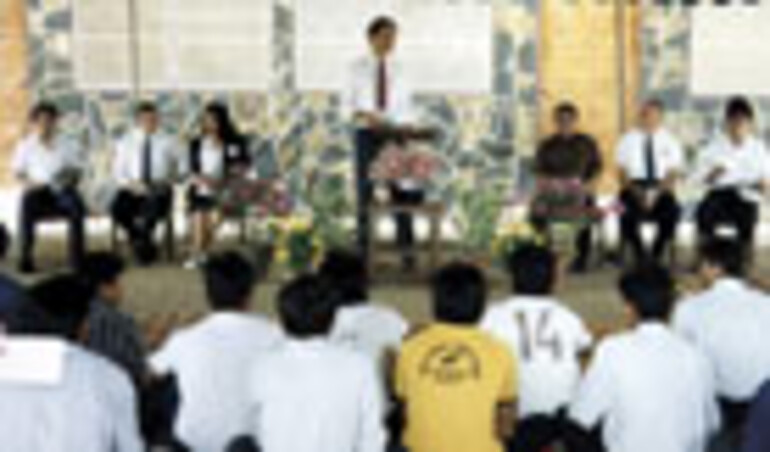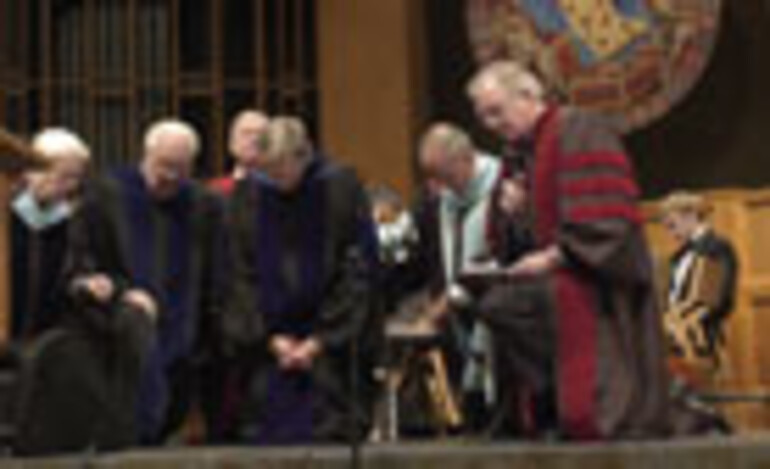Jon Dybdahl can remember exactly where he was sitting when God called him to ministry.
One Friday night at Pacific Union College, during vespers, he remembers feeling the strongest sense that he should be up front preaching. Although several people had suggested that he should consider the ministry, Dybdahl, a pre-medicine major, was planning to become a physician, like his father.
But the sense of God calling him to preach didn’t go away, and in the middle of his sophomore year, Dybdahl decided to switch to theology.
“I felt a sense of peace that I’d never had before, so I’ve never really looked back,” he says. “I’ve always had a sense that this was something that I didn’t choose, but God chose.”
When Dybdahl was invited last year to become Walla Walla College’s (WWC’s) president, he felt a similar sense that God was once again calling him. He arrived on campus in July and was formally dedicated in a Nov. 18 inauguration ceremony. (See page 31.)
Thoughtful and Compassionate
Fellow administrators, faculty, and staff describe Dybdahl as thoughtful, compassionate, and highly committed to the College and its mission.
Dybdahl’s professional interests and expertise are founded on years of service in the mission field. He has written two books and numerous articles on the subject of mission and recently chaired the board of directors for Adventist Southeast Asia Projects.
Shortly after he completed the seminary program at Andrews University, Dybdahl received his first call to mission work in Asia. Dybdahl remembers that he and his wife, Kathy, didn’t spend a long time debating whether they should go, it just seemed “the right thing to do.”
For six years, Dybdahl and his wife worked in northern Thailand, facing one of their biggest professional challenges—learning a new language and culture in order to do their jobs effectively. Just three months into their time in Thailand, Dybdahl became the pastor of a church where no one spoke English. While in Thailand, the Dybdahls started Chiangmai Academy, still the only Adventist academy in Thailand. They later moved to Singapore, where Dybdahl was a teacher and pastor for two years.
“Living in Asia certainly changed me in many ways,” says Dybdahl. “It has affected the way I look at life, how I teach, what I teach.”
Easy-Going
Dybdahl looks to the easy-going culture of Thailand for inspiration in dealing with potential confrontations. “Sometime I think we do need to take action,” says Dybdahl, “but we need to do it gently and work with people on an interpersonal level as much as possible.”
In 1976, Dybdahl brought his family back to the United States, where he served as an associate professor and professor in the WWC School of Theology for the next 13 years. The move involved many changes, including readjusting to Western culture, but Dybdahl says he remembers the time with great fondness. “It gave me a chance to grow and develop,” he says. “I remember many good friends and colleagues, wonderful discussions, and feeling that the college was very much alive.”
Former students remember Dybdahl as being personable, knowledgeable, very spiritual, and an engaging lecturer.
In 1990, after a year at Thailand Mission College, Dybdahl joined the faculty in the Department of World Mission at Andrews University and enjoyed teaching and training Adventist ministers. When he received an invitation to return to WWC as its 22nd president last year, he was initially hesitant. Andrews University was a safe place, and coming to WWC as its leader and vision-caster was a bit daunting. In the end, however, after much thought and many prayers, Dybdahl and Kathy felt convinced this was God’s plan for them.
School Spirit
When Dybdahl visited the campus last spring, he was impressed by a sense of school spirit. “I was pleased,” says Dybdahl, “to find, even among students, a feeling that there’s no place quite like Walla Walla College. Those kinds of convictions are priceless. They cannot be bought.”
Dybdahl points to the tremendous loyalty faculty, staff, students, and alumni have for the College and observes that many of the strengths that he noticed as a faculty member still exist today. “The College has always taken academics seriously,” he says, “and that’s a valuable strength. The program of mission is strong, and there is an emphasis on spirituality.”
In Dybdahl’s inaugural address, he spoke of five specific areas that he sees as focus points for the next few years: a clear articulation of the College’s mission and vision; an integrated strategic plan that addresses student needs and financial issues; building relationships among different constituencies, inside and outside of the College campus; growth in mission work, and promoting diversity among students; and completing the “Faith in the Vision” capital building campaign.
Source of Renewal
“At many times in history, colleges and universities have been a source of renewal for the Church and for the world,” says Dybdahl. “We want to do that at our College. This is my dream.”
“I’m not adequate for this call,” says Dybdahl, “but God is. If we forget that this is God’s business, then we become just like any other generic educational institution. Everyone at this college is called to serve, and the more we feel that sense, the more it brings purpose to everything we do.













